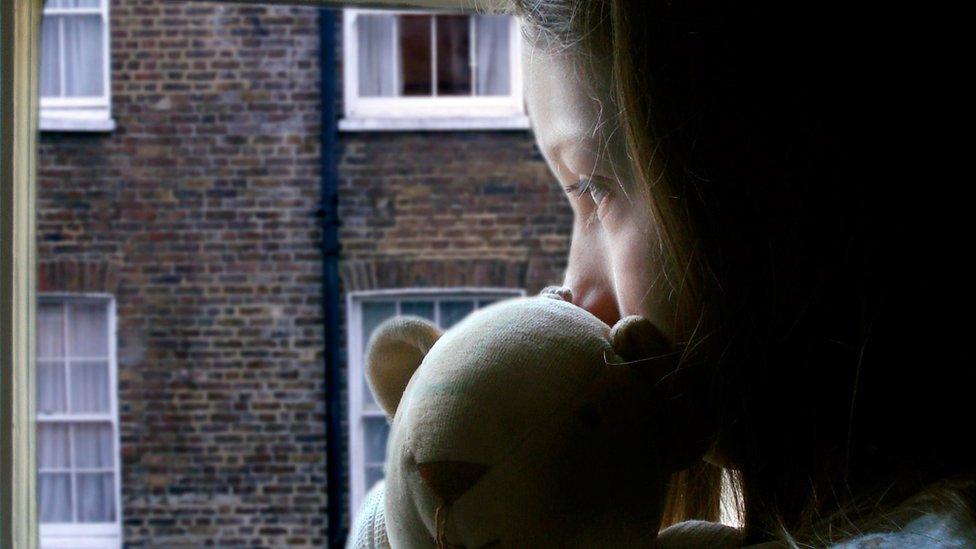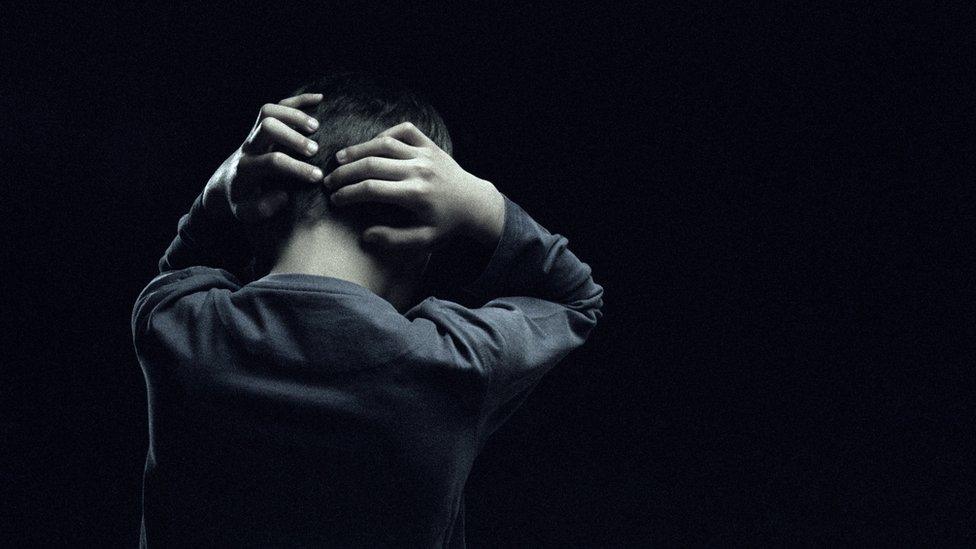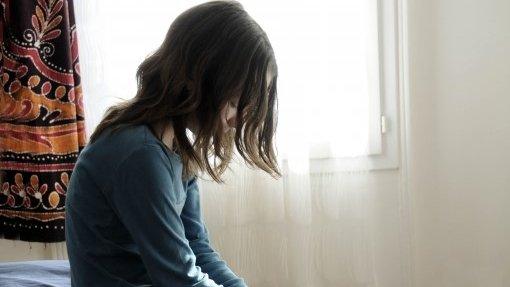Mental health care 'insufficient for abused children'
- Published
'Lucy': "People try to kill themselves to speed up their referral."
Nearly all health professionals believe there are not enough mental health services for children who have suffered sexual abuse, a survey has suggested.
The NSPCC surveyed 1,256 people in the UK, including psychologists, teachers, GPs and social workers, and 96% said there was insufficient help.
Just over half blamed waiting lists, and 78% said accessing help had become more difficult in the last five years.
The government says an extra £1.4bn is being spent to improve the situation.
NSPCC chief executive Peter Wanless said the situation "shames the nation" and called for better access to therapy.
The charity says abused children often have to develop chronic mental health problems, be suicidal or self-harming before services become available to them.
It found that in many cases children have to wait more than five months to get specialist support.
"There is no early intervention," said one of the professionals surveyed. "The child needs to have severe mental health problems before a service is available to them, due to the numbers and waiting lists."
Another said the range of services available was "shockingly low".
A senior clinician, responsible for the care of thousands of children, told the BBC that staff felt "desperate" about the lack of help available.

In addition to Child and Adolescent Mental Health Services (CAMHS) - which provides access to psychologists, nurses and social workers - the survey also looked at services such as counselling and cognitive behavioural therapy, provided by the NHS and the voluntary and private sectors.
Some 98% of the professionals polled said there was not enough of these services either.
When asked about their experience of accessing all services in the previous six months, the barriers included cuts to services, not enough places and overly-stringent criteria.
"The views of professionals in this survey speak loud and clear," said Mr Wanless.
"The government and those that commission services urgently need to increase what is currently available to support this most vulnerable group of children."
The NSPCC said victims were often referred to mental health services by GPs and councils, and while not all abused children would have a diagnosable issue, many would still need therapeutic support to help them deal with the trauma.
It said if abused children did not receive the right kind of help and support, the damage could last a lifetime and many could suffer from post-traumatic stress disorder, depression or suicidal thoughts in adulthood.
The charity is launching a new campaign - It's Time - to raise awareness of the problems abused children face in getting help.
'Money being invested'
At first, the campaign wants to rally at least 100,000 members of the public to its cause, with supporters being asked to exert pressure on MPs to have funding prioritised.
A Department of Health spokeswoman said the government had pledged further investment.
"We are investing £1.4bn into young people's mental health and are working with local areas to improve services in hospitals, schools and communities so young people get better quality mental health care as quickly as possible, a key part of which involves helping the victims of abuse," she said.
- Published12 October 2015

- Published24 November 2015

- Published17 June 2015
